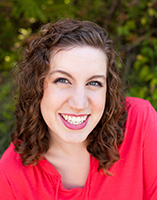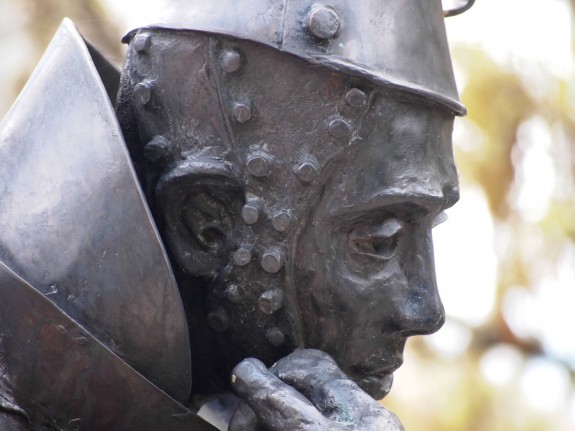“I just got a book of character archetypes, but it seems so limiting. Do I really have to categorize all of my characters into these types?” –Confused & Characterless
To answer your question, Confused & Characterless, I give you another quote:
“They’re more like guidelines than actual rules.” –Captain Barbossa
I highly approve of character books like this, as they can give you great insights as to personality-type motivations. Archetypes can be a great way to build a foundation for your story. After all, time-tested story arcs like Romeo & Juliet keep people coming back for more centuries later.
But if you’re not careful, a glittering story antique can rust and turn into that most wince-inducing of writing no-nos: the cliché. Wouldn’t it be so much better to surprise your readers instead of let them yawn and say, “Been there, read this”?
Let’s talk about how to give a fresh spin on those old character tropes by writing outside of your preconceived expectations.
Damsel in Distress
Is there anything WORSE? This trope is used over and over again in movies, TV, videogames, and—yes—books. The hot/pretty/cool girl gets into some kind of danger, usually at the fault of the hero’s bad judgment. This plot device is great for motivating the hero into action…
…and terrible for character development.
Damsels in Distress usually have very few motivations of their own and/or are too incompetent to get out of the situation themselves. This is a problem for fictional women as a general rule.
Come on! You can work harder than that. Flip readers’ expectations on their heads by twisting the Damsel in Distress archetype. I wrote a recent story which is based on the Damsel in Distress archetype—and when the hero gets to the top of the tower to save the princess, it turns out that she orchestrated the whole thing to make him prove himself. Now there’s a lady in control!
When in doubt, you can always genderswap. This is a fun exercise for anyone who needs help writing other genders or for people who let their males and females fall into the same cliché plots. Write the story you would normally write—and then change the genders of all the characters in the story. You’ll surprise yourself and give the story a fresh, original feel.
Brooding Bad Boy
He may be a little rough around the edges, but he’s just misunderstood.
Even though this archetype might make teenage girls swoon, he’s literally everywhere. Edward. Jacob. Danny Zuko. Everyone from The Outsiders. Even Mr. Potter went through a bad boy phase roundabouts book 5.
Is it really a sign of happily-ever-after when a character stands at the foot of his girlfriend’s bed and watches her sleep? It’s cool for your characters to brood, but don’t they have other feelings, too? Sure, they don’t care if they’re on the fringes of society, but what do they love? What do they care about? And heaven’s sakes, don’t they ever laugh?
So, when you’ve got a Brooding Bad Boy starting to approach your story, try playing off of expected stereotypes. Most bad boys don’t give two sh!ts what anyone thinks about them, playin’ it cool with the James Dean haircut and leather jacket. So maybe your bad boy is brooding much of the time, but he’ll gush for hours about the adorable thing Fluffy did the other day, and show you all the pictures of the cat on his phone. And don’t even get him started on the virtues of cat owners over dog owners.
You can make your readers laugh and love your characters even more by giving them seemingly incompatible personality traits. Real life people aren’t so easily categorized. Your characters shouldn’t be, either.
Seductress
Those rascally succubi, up to their no-good nonsense of seducing your hero away from his true love!
You’ve seen the movies and you’ve read the stories. The trope of Seductress usually refers to whatever is tempting a character away from what he needs to be doing, so it doesn’t have to be sexual (although it usually is). The problem here is that the Seductress herself (or himself—equality!) usually has no development. She simply wants to jump on the hero because, you guessed it, that’s why she exists in the plot.
Try this: Whenever you start to write a scene in which the character starts to be seduced for no apparent reason other than that’s what women do, try writing it from the point of view of the Seductress. What are her motivations? Why is she waylaying the hero—is it because she’s working for the bad guy? Is she being coerced? Or is it some deeper, more personal reason? Maybe there’s someone she’s trying to protect, or because the hero reminds her of her long-lost husband. You might uncover something about your plot that you never knew existed.
Plus, why shouldn’t your hero take a break from his quest for a romp in the sheets?
Remember that even minor characters still have their own lives and motivations, and should act as such. Or, as a theatre teacher once said, there are no small parts, only characters-who-don’t-take-up-as-much-narrative-space.
Wizened Mentor
Gandalf. Dumbledore. Ol’ Ben Kenobi. Morpheus. That guy from the All State commercials. Wizened Mentors are literally everywhere, and while they’re both a part of Joseph Campbell’s Hero’s Journey and usually critical to cluing the hero in as to what he’s supposed to do, giving sage advice and visions of the future.
Is there anything more annoying than grandpa yammering on about getting up early before the worm’s gone?
The problem with the Wizened Mentor is that they’re often all-knowing. They know things, man. They’ve seen things. And usually they tell a hero exactly what to do, except the hero never listens and the reader inevitably facepalms when he doesn’t.
*facepalm*
The thing about real people is that nobody actually knows what they’re talking about. Not even me. I know, I know, keep your hats on. The old guy who’s telling you what to do? That’s experience talking, sure, but that’s his own experience. Age does not always equal wisdom. And (usually) there’s no way he can know about the future or any so-called prophecies. But that’s a cliché talk for another day.
If you have a more experienced character in your story, he can still give advice to the hero, but to test the theory, try letting the hero actually follow the advice—and not succeed with it. This can be a great push to get your hero to realize to trust his or her own instincts, rather than rely on well-meaning advice.
You know what’s great about it? It means your Wizened Mentor might be an actual human being instead of a proselytizing god incarnate. Real people are fallible and make mistakes. Your Wizened Mentor should be no different.
What are the most annoying clichés you see in literature? And how are you combating clichés in your own work?
Got a question? Tweet me @beccaquibbles with the hashtag #askbecca, email me at becca [at] DIYMFA [dot] com, or just leave a comment below! You could see your question answered right here at Ask Becca!
……………………..
 Rebecca Ann Jordan is a speculative fiction author and artist in San Diego. She recently won Reader’s Choice Best of 2013 for her short story “Promised Land” at Fiction Vortex and has published poetry and fiction in Flapperhouse, Swamp Biscuits & Tea, Yemassee Journal and more. Becca is pursuing a master’s degree in Creative Writing from California Institute of the Arts. See more from her at rebeccaannjordan.com.
Rebecca Ann Jordan is a speculative fiction author and artist in San Diego. She recently won Reader’s Choice Best of 2013 for her short story “Promised Land” at Fiction Vortex and has published poetry and fiction in Flapperhouse, Swamp Biscuits & Tea, Yemassee Journal and more. Becca is pursuing a master’s degree in Creative Writing from California Institute of the Arts. See more from her at rebeccaannjordan.com.







